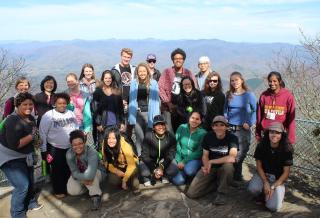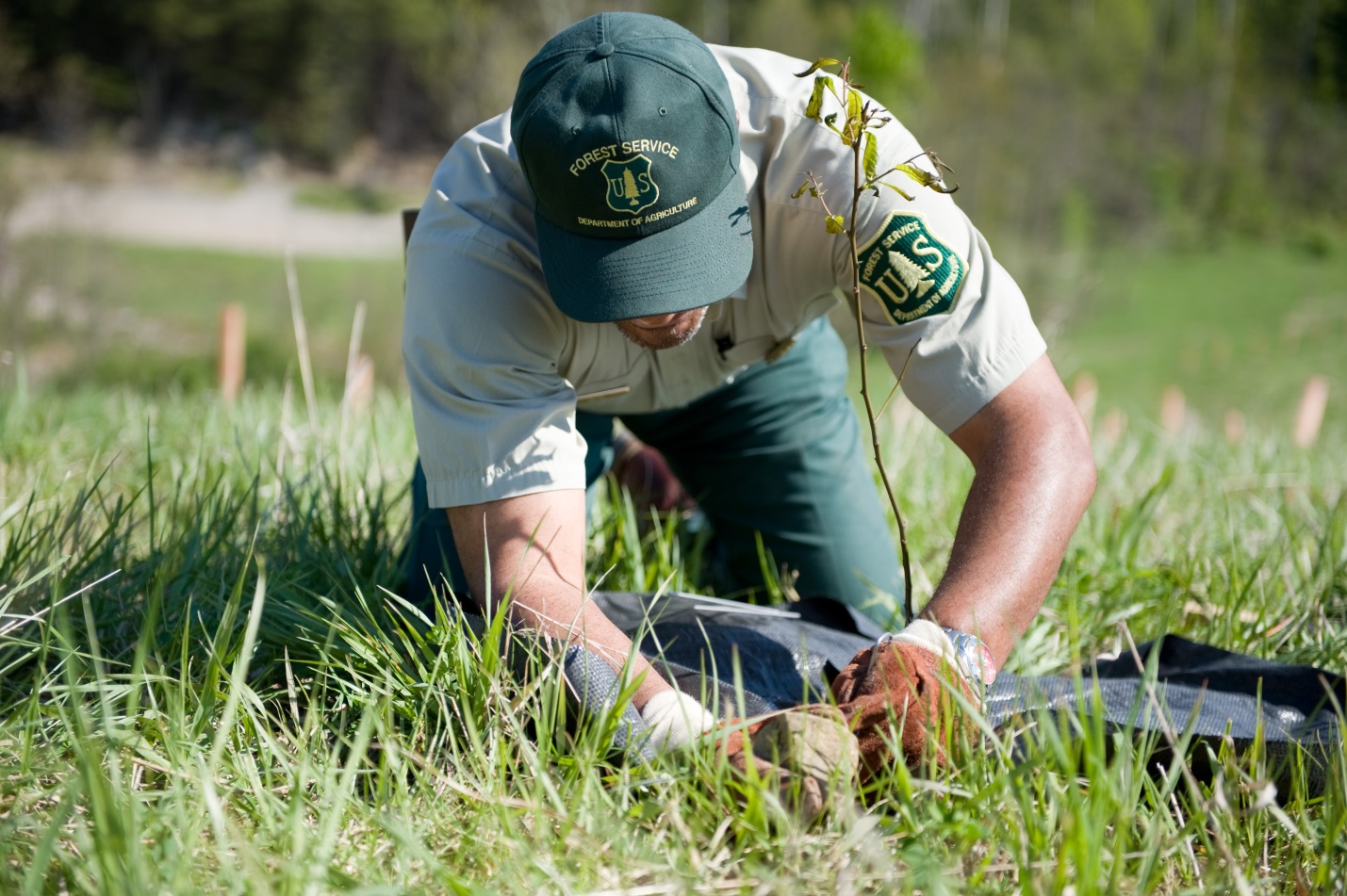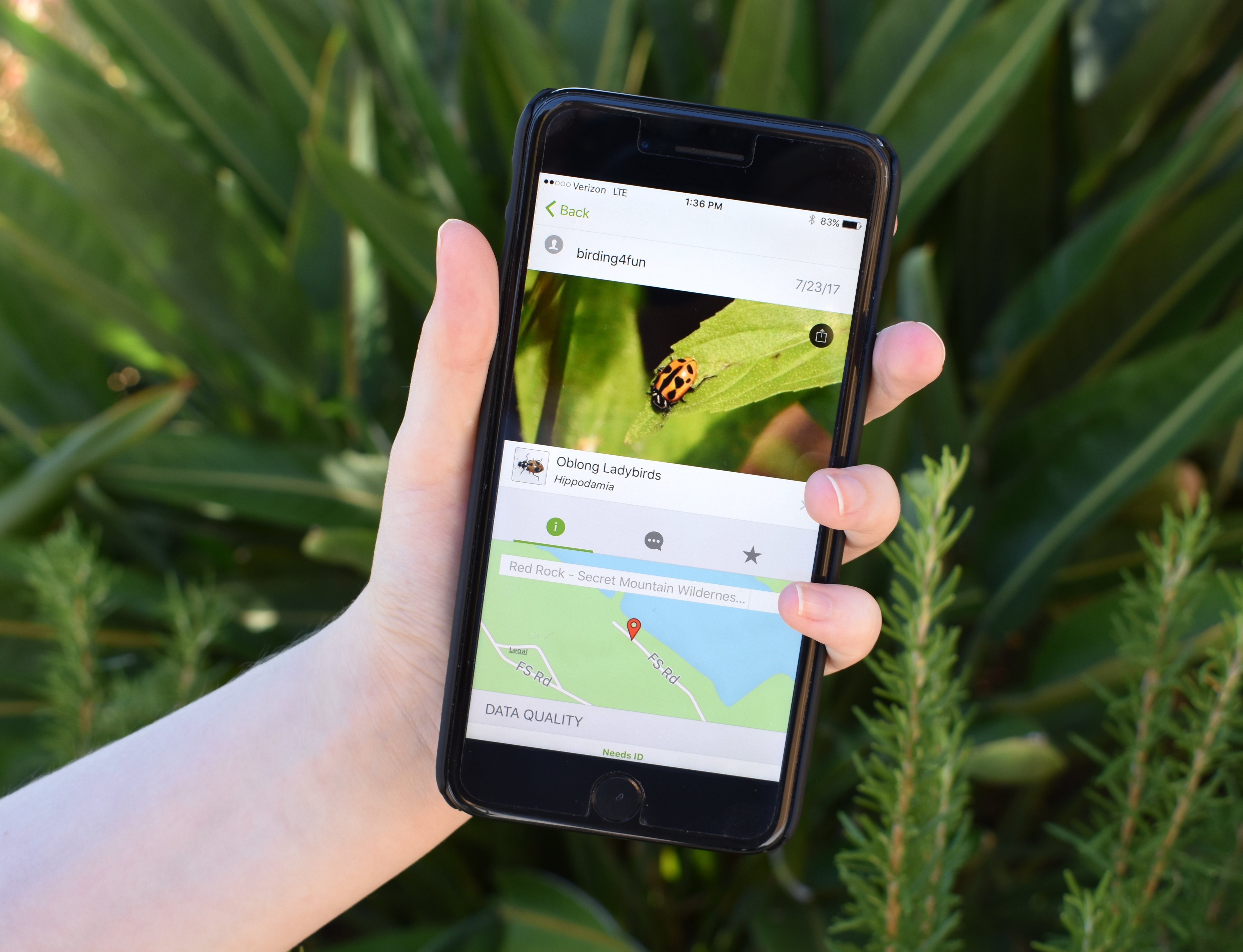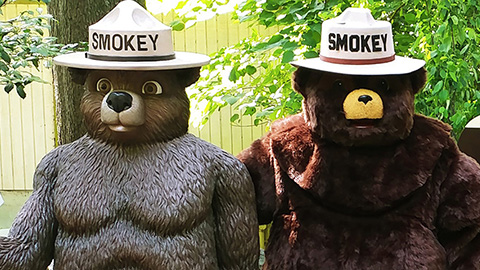
In mid-April, scientists and staff at the USDA Forest Service Coweeta Hydrologic Laboratory hosted the Strategies for Ecological Education and Diversity (SEEDS) 11th annual leadership meeting. An award-winning program of the Ecological Society of America (ESA), SEEDS focuses on students at the undergraduate level, with the mission to diversify and advance the ecology profession by stimulating and nurturing the interests of underrepresented students to participate and lead in the field of ecology.
This year’s meeting included 20 undergraduate students from a wide range of backgrounds and cultures, and focused on the theme “Diversity for Healthy Forest: the Connection between Forestry Science and Society.”
“This was an amazing opportunity, one that we were fully committed to from the moment we were asked to host the meeting and plan the agenda,” said Chelcy Miniat, project leader for the Forest Service Southern Research Station (SRS) Forest Watershed Science unit and the Coweeta laboratory. “The Forest Service Washington Office contributed funds to the meeting, and I worked with SEEDS staff and our scientists and staff to craft an agenda that addressed the meeting’s themes and introduced the students to careers in conservation and forestry available in the southern Appalachians.”
The agenda highlighted the ecology of the southern Appalachians and the importance of national forests in supplying fresh water supplies to the cities of the South. The Science Day on Thursday, April 14, featured onsite field tours to watershed experiments and weather stations, presentations on forestry experiments, the Migratory Bird Research Project – and later for fun, a night hike.
On Friday, the students engaged in a science communications workshop hosted by Babs McDonald, writer and editor for the Natural Inquirer, a middle science education journal published by the Forest Service. As part of the session, each of the students were asked to quickly read a scientific journal article by an SRS scientist and present an interesting talk about the article in two minutes. All of the students did an amazing job of communicating the main points of some very complicated research projects.
To help the students get an idea of the types of careers they might find in conservation and forestry in the southern Appalachians, the organizers put together a panel that included a national forest district ranger, Forest Service scientist, executive director of a local nongovernmental organization, timber manager for a local forest products company, science educator, and science writer. Lively discussions continued into lunch, which was prepared and served by the Forest Service Lyndon B. Johnson Job Corps Center based in nearby Franklin, North Carolina.




